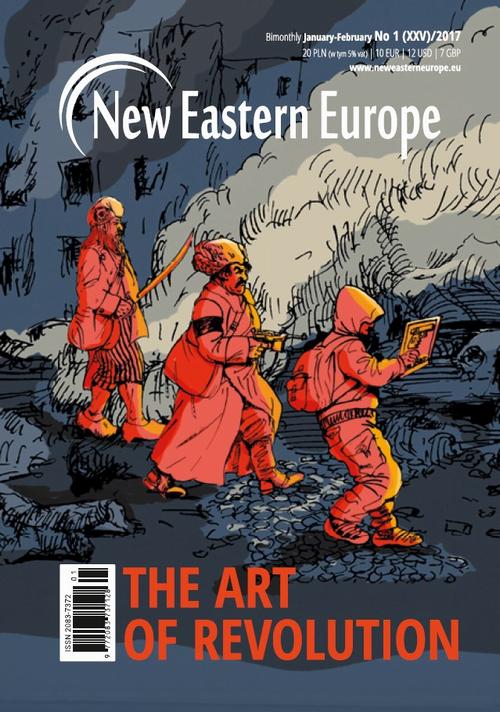
New Eastern Europe 1/2017
In this issue we explore the phenomenon of Revolutions which has played a key role in this region for centuries: revolutions. We specifically look at the question as to whether revolution in Ukraine h...
Dostępne formaty
Zakup obejmuje wszystkie dostępne formaty książki
Description
In this issue we explore the phenomenon of Revolutions which has played a key role in this region for centuries: revolutions. We specifically look at the question as to whether revolution in Ukraine has become a permanent feature of that country’s political culture since independence 25 years ago. In this issue we return to the thesis that Paweł Kowal and Maciej Wapiński put forward three years ago in New Eastern Europe which adds the 1990 students’ hunger strike to the sequence of revolutionary events in Ukraine. Consequently, our authors map the country’s post-Soviet transformation through the prism of revolutionary events. Naturally, political transformations, peaceful or not, have not been limited to Ukraine. They have been occurring in many areas of the post-Soviet space. This fact has been cherished in the West. However, the picture of Armenia, as penned down by Małgorzata Nocuń illustrates how such an assumption is not entirely correct. Even once a part of the same unit, we need to look at the post-Soviet republics as states that have taken different paths in the last decades and continue to experience different pressures from Russia. To understand this further we should cautiously follow the developments within them, as well as within Russia. A good start are three texts: Sean Guillory on the failure of the Russian protests to achieve any sustainable success, Daniel Wańczyk on the changes taking place in the life of the Arctic seen in the example of Vorkuta and Wojciech Siegień who notes the indoctrination through education that is now increasingly present in the Russian Federation. We also take a look at the importance of Polish-Ukrainian relations in the future success of the region. These are mentioned in the pieces by Georges Mink, Kostiantyn Fedorenko and George Soroka. All the authors postulate on how painful historical memories still exist between the two nations and argue the need for their resolution. A review of the recent film Wołyń by Kaja Puto is an additional point in this debate.
50 Reviews 4.9
- 5 Stars (35)
- 4 Stars (10)
- 3 Stars (3)
- 2 Stars (2)
- 1 Stars (0)
Reviews

Muaz Bin
A Storytelling Workbook is a gem for anyone looking to enhance their narrative skills! The exercises are engaging and practical, making it easy to dive into storytelling with confidence. A must-have for aspiring writers!



